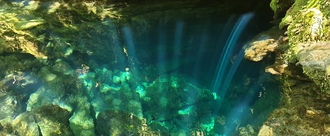-
Huarahi Māori o Te AwakairangiHuarahi Māori o Te Awakairangi is a social action campaign started by six Year 13 students at Wainuiomata High School. We strongly believe that colonial street names are controversial and not reflective of our communities. We have conducted some research and found that less than 22% of the street names in Te Awakairangi are Māori. With the support of our community, we want to have meaningful street names which reflect our culture. We must keep our culture alive and not celebrate those who have stripped that from Māori. For example, the two Wakefield brothers ended up in prison for three years for abducting a 15 year old girl. Here in Aotearoa William Wakefield manipulated the lands out of Māori hands and condoned and promoted colonisation of our country. That name does not deserve to be represented on our whenua. "...These are the names we say everyday with ease while ancient names, names with stories, and genealogies tied to this place get erased, replaced, and sometimes butchered beyond recognition..." -Dr Emalani Case (from 'Lost in Wellington') We aim to bring change through our values of manaakitanga and peace. Please sign our petition and help us make this change.588 of 600 SignaturesCreated by Nicole Hawkins
-
Demanding Action Against Animal ExperimentationUsing animals for science does not start in a lab. It is driven by a complicated web of factors. Funding and policy decisions are a major driver of animal experimentation. A lack of transparency and openness means the public rarely knows what is going on. And our laws are often weak and selectively enforced. To tackle these problems, we are going to the very source of the use of animals in science! This petition aims to put the pressure on Parliament to start creating a world without animal testing. NZAVS has been campaigning on this topic for decades, so we will also be sharing our expertise for how to make it happen. What this petition is demanding: Better allocation of funding • Funding for retraining scientists to use non-animal-based and human-relevant methods. • Funding for infrastructure for non-animal-based and human-relevant methods. • Prioritisation of funding for research using non-animal-based and human-relevant methods. • Prioritisation of funding for research to create non-animal-based and human-relevant methods. • Funding for universities to develop courses on non-animal-based and human-relevant methods. • Deprioritisation of funding for animal-based research. Greater openness and transparency • Mandatory filming of experiments involving animals. • A registration programme for those providing animals for research. • Birth to end-of-research tracing and transparency, so it is clear for any given experiment where the animals came from and where they went after the research. • Greater transparency for existing documents, requiring their publication. • Publish all findings using animals to avoid unnecessary repetition. • Ensure private research conducted on animals is made public, to avoid unnecessary repetition. • Research conducted overseas for New Zealand companies should be subject to the same standards of openness and transparency. Stronger laws • Government bodies commit to phasing out the use of animals in science as technology permits. • Phase-out all requirements for animal testing in New Zealand law. • Legislation amended to require that non-animal-based RTT methods be used over animal-based methods (alive or dead), where they exist. • An independent body for animal welfare, such as a Crown entity or commission. • A Minister for Animals separate from the Minister for Agriculture. • A comprehensive review of the efficacy of the animal model and the potential viability of non-animal-based methods as replacements. • Involvement of the public and advocacy groups like NZAVS in decision-making. • A requirement for all Animal Ethics Committees to have an expert on non-animal-based methods. • A requirement for all Animal Ethics Committees to make applications public. • A requirement for all Animal Ethics Committees to check for non-animal-based methods that may be able to replace animals when considering an application. • The establishment and maintenance of a database of non-animal-based methods, to aid Animal Ethics Committees. • The restructure of Animal Ethics Committees to minimise conflicts of interest. Scientists involved should not have a financial interest in animal-based-research – whether via employment or ownership of a company. • Sufficient funding for enforcement to ensure these objectives are met. We believe that fulfilling these requirements will result in a new, refreshed system that will encourage scientific progress without causing harm to animals. This new system will help pave the way for a kinder and fairer Aotearoa where humans and non-human animals suffer less. Once successful, we’ll be closer to a world where human health and medical research thrives and where animals are seen as individual beings with their own right to life. You can read more about the campaign here http://nzavs.org.nz/striking-at-the-source You can learn more about how animals are used in science in NZ here: https://nzavs.org.nz/animals-in-science-nz22,350 of 25,000 SignaturesCreated by Jade Pengelly
-
Be Courageous: Support the establishment of a Māori WardFamilies and friends of Taranaki invite you to sign this petition to show you care about meaningful and effective Māori/Pākehā partnership in local government in Aotearoa. This is about Aroha. Aroha to direct one’s essence, energy to another person, place or object. Aro to direct Ha our essence, our energy, our breath. In July, New Plymouth District Council’s Elected Members made an impassioned stand for better representation for Māori around our Council table by voting to establish a Māori Ward at the 2022 local elections. These councillors challenged the severely broken legislation that places roadblocks in the way of Māori representation. This demonstration of collective aroha shown by New Plymouth councillors reflects the genuine voice of our community, 180 years after entering into partnership under the Treaty of Waitangi, New Zealanders want to see relationships honoured and friendships with tangata whenua nurtured better. It will only take 2874 signatures for those against the Māori Ward in New Plymouth to succeed in calling a referendum to uphold the racist status quo. Councils nationwide face this same issue. While those against the Māori Ward are gathering momentum to block the establishment of the Ward we can counter the spread of racist ideology through the aroha in this petition. We call on the binding power of aroha to show up and be heard. Aroha is more than just love, it directs our energy, grows that potential and binds us to someone or something. Please sign this petition to show the NPDC and councils nationwide that we support the establishment of a Māori Ward and value on-going work of building relationships with our Māori community! ----- For resources to help us have those prickly conversations with aroha and kindness click here - https://www.facebook.com/kinaconvos (shot Kina Convos!)3,245 of 4,000 SignaturesCreated by Rongomou Community Action ❤✊✌

-
Stop the sale of puppies at pet stores and online in Aotearoa unless it can be properly regulatedThe New Zealand Animal Welfare Act legally recognises animals as 'sentient', meaning they are now seen as able to perceive and feel things and have a right to express natural behaviour. However, this act has too many extreme intolerable loopholes, and experiences a total lack of enforcement from those in power. Legal enforcement of the Animal Welfare Act (AWA) in New Zealand is down to the Ministry of Primary Industries and the SPCA. There is a lack in the numbers of those regulating the Act, and the New Zealand Government does not appear to dedicate an adequate amount of money to the SPCA, which relies almost entirely on donations and fundraising. This is not enough. No proper enforcement of the AWA means there are little to no regulations that apply to the breeding and selling of dogs and puppies in Aotearoa. This means virtually ANYONE can breed and sell a dog, no matter the life stage or stability. This puts the dogs at high risk of poor treatment, malnourishment and illness. In many cases, dogs involved in backyard breeding live in shocking conditions that no animal should ever have to endure. Puppy mills and irresponsible breeders are known to breed dogs for quantity, not quality. In order to make the money they want, they do not care to provide veterinary care to the pups that need it most, potentially leaving them with life-long health defects. It is totally unfair and wrong that behind the scenes, puppies are being bred in horrific environments so that breeders and pet-store owners can benefit economically. The only solution to this would be to stop the sale of puppies at pet stores and online unless those with higher power implement and enforce proper regulations that ensure puppies do not have to suffer just so that breeders can earn some money. Those involved in puppy mills and irresponsible breeding need to be held accountable and these unacceptable practices need to stop. We want ALL animals to be respected as the living beings they are. You can also educate yourself on the topic using the following websites... SAFE - https://safe.org.nz/our-work/animals-in-need/puppy-mills/ PETA - https://www.peta.org/issues/animal-companion-issues/pet-trade/puppy-mills/ Animal Welfare Act (SAFE) - https://safe.org.nz/our-work/animals-in-need/animal-welfare-act/ Here is a link to our OWN website we created to raise awareness: https://kellydykes.wixsite.com/puppymillsinaotearoa225 of 300 SignaturesCreated by Kelly Dykes
-
Provide water fountains in all public places“One of the worst days in my dental career was when I had to remove 10 teeth in one surgical procedure from an 18 month-old baby, still in nappies,” says Dr Beaglehole. (Principal dental officer at Nelson Marlborough Health). Lack of access to public drinking fountains and prominent marketing of sugary drinks create an environment where it’s often easier to find somewhere to buy bottled drinks than find a drinking fountain, increasing the consumption of sugary drinks and bottled water and with it increased obesity, dental decay and plastic pollution which is killing our marine life. Its hard to imagine but last year 8,700 children in NZ had to be hospitalised to have their teeth removed, due to dental decay and the main reason is sugary drinks. Sugary drinks are also a big contributor to our high rates of obesity and obesity is a recognised risk factor for severe clinical outcomes of COVID-19, and obese people are nearly 50% more likely to die from Covid 19.* A recently released UNICEF report, found that New Zealand has the second highest obesity rate in the OECD. More than one in three children are overweight or obese, with Pasifika (66.5%) and Māori (48.2%) children facing the highest risk . We are also seeing a rise in Type-2 diabetes in children we huge long term health risks. This could be avoided with better access to free tap water when people are out –by councils putting in more public drinking fountains. Currently there is only one drinking fountain for every 3,135 people and as few as one fountain for every 17,000 people in the worst-affected area. Paying for bottled drinks on the go, when good quality tap water should be readily available free-of-charge via drinking fountains, is an unnecessary expense for Kiwi families, especially with the economic impact of COVID-19 With the recent establishment of Taumata Arowai, the new Crown Entity to regulate water, there is an opportunity for central government to act urgently to make tap water the first and most convenient choice for New Zealanders. “Taumata Arowai’s objectives and functions includes protecting and promoting water-related public health outcomes. So we’re calling on government to act and make drinking fountains compulsory in half of all public parks, sports fields, and playgrounds.” SIGN NOW as we have a unique chance for new legislation to be introduced when the new government comes in. 👎 Councils have neglected to provide access to public drinking fountains where they are needed. 👎 With an average of just one drinking fountain for every 3,303 people and as few as one fountain for every 17,000 people in the worst-affected areas. 👎 As few as one in five children’s playgrounds, and less than one in 10 parks, have water fountains.* 👎👎 Data shows low-income communities often have fewer public drinking fountains per person than more economically affluent areas, reducing choice and affecting Māori and Pasifika health outcomes. ⚠ Kiwis consume up to six times the recommended daily sugar intake, with 25 per cent coming from sugary drinks, one 600ml soft / sports drink contains up to 16 teaspoons of sugar – more than five times the World Health Organisation’s recommended daily intake of sugar for a child, in one hit. ⚠ Contributing to our high rates of obesity, with than one in three children overweight or obese. (UNICEF) ⚠ In 2019, the number one reason why Kiwi kids were admitted to a New Zealand hospital was to have their teeth removed under general anaesthetic. https://www.stuff.co.nz/national/health/111956057/appalling-child-tooth-decay-rates-in-northland-and-auckland ⚠An international team of researchers found that people with obesity who contracted COVID-19 were: • 113% more likely than people of healthy weight to be admitted to hospital, • 74% more likely to require treatment in ICU, and • 48% more likely to die. *https://www.sciencemag.org/news/2020/09/why-covid-19-more-deadly-people-obesity-even-if-theyre-young 👎 Single-use plastic bottles are also a major contributor to plastic pollution on our beaches and waterways, killing our marine and bird life. In Aotearoa, we throw away an estimated 838 million plastic bottles every year - the equivalent of 165 Olympic swimming pools. 👍 Councils are the ones legally responsible for providing clean drinking water and need to increase their level of investment in public drinking fountains. 👍 Improving drinking fountain provision in low-decile areas, on sports grounds, and in parks and children’s playgrounds can help reduce the consumption of bottled drinks and help fight sugar-related health issues and single-use plastic waste. SIGN NOW as we have a unique chance for new legislation to be introduced.377 of 400 SignaturesCreated by Jill Ford
-
Team of Six Million: Kiwis United Against Quarantine Fees1. New Zealand has a public health system and quarantine should be funded as part of that. 2. Quarantine is for the benefit of all New Zealanders, not just those under quarantine. 3. The charging of any fee ($3000 or any other amount) affects low income New Zealanders the hardest and will provide a barrier for some people returning home from overseas. 4. Charging New Zealanders a fee to return to their country is unlawful. 5. Charging Māori a fee to return to their whenua is also a breach of Te Tiriti o Waitangi.4,592 of 5,000 SignaturesCreated by Luke Claasen
-
Pledge to use our votes for Climate Justice in the 2020 ElectionThe stakes for the 2020 election have never been higher: the action we do or don't take on climate change in the next ten years, and in this election cycle, will determine the future we are passing on to the next generation. We are inviting all people in Aotearoa New Zealand to pledge to use your vote for climate justice in the 2020 election. During COVID-19, our team of five million demonstrated overwhelming kindness, compassion and support for one another. We came together to get New Zealand into one of the best positions globally in relation to COVID-19. This is one just step. As we recover, we must ensure we are doing the same to use the opportunity to show other countries how a green recovery can be done, with climate justice at the centre. 🌏🌏🌏 This is the perfect opportunity to centre a just transition for all which is aligned to Te Tiriti ō Waitangi. When we say climate justice, we mean indigenous justice, disability justice, social justice and all other facets of justice - a just transition, with no one left behind. We can build better by recognising the intersectionality of the issues and challenges we face and make progress across the board. 🌏🌏🌏 This planet that we share is facing its own pandemic, suffocated by 100 corporations contributing 70% of global emissions and by political leaders who simply aren’t doing enough. We need to stand up for Papatūānuku, our Earth Mother, now more than ever. 🌏🌏🌏 Let’s take this moment to co-create a new ‘normal’ which puts this planet that we all share to thrive. Our elected representatives listened to the science on COVID-19, now it’s time for them to do the same with climate change. The climate crisis threatens people, nature, and everything we care about. The crisis calls on us to re-organise our economies and relationship to the planet and each other. Whether it’s the health system, our jobs and income, our local beaches, our favourite patch of native forest, our communities, or our mental health – we won’t go back to business as usual. By voting for better climate change policy means we will be voting for everything and everybody we care about to have a better future. 🌏🌏🌏 Many of the policies we need will have co-benefits for other environmental and social issues. Some of these benefits include: improving health and economic outcomes with less cars and more active transport, food sovereignty from growing and buying more nutritional, mostly plant-based produce locally, and decentralising power and energy supply, leading to savings for communities. By decarbonising our economy, we will create more time for doing the things we love, with the people we love, in the nature we love. It will mean working less and sharing more. Driving less and cycling more. Polluting less and planting more. Overall, climate change policies will make our society more resilient as they intersect with every aspect of our lives. 🌏🌏🌏 Make the pledge now! In the 10 weeks leading up to polling day, Vote Climate is holding events across the country to encourage New Zealanders to vote climate. Events, spread across cities and regions, encompass everything from rallies to cross-party climate debates. The campaign aims to inspire voters to find more about their parties and candidates' stance on climate change, and push every party to provide a comprehensive climate action plan that aims to keep us below 1.5 degrees of warming by halving our greenhouse gas emissions. Head over to the Vote Climate 2020 Facebook Page to check out the different events happening each Friday https://www.facebook.com/pg/voteclimate2020nz/events/169 of 200 SignaturesCreated by Vote Climate 2020
-
Don't Exclude Lake Horowhenua From Freshwater PolicyLake Horowhenua near Levin is a taonga. Despite it's awful treatment over decades - sewage, stormwater and other run off from the land pouring into its water- this is a place we treasure and have long wished to clean up. The Government is introducing new new rules for the protection of freshwater in our streams, awa (rivers) and roto (lakes). There are some really good things in the new rules, for example caps on the use of synthetic fertiliser. They also put in place greater protection measures for wetlands, as well controls on the soil and sediment allowed to enter waterways.[1] However, we are deeply concerned that you, as Minister for the Environment, are considering leaving Lake Horowhenua out of the new rules, which would allow the lake to be polluted even further. It is clear you consider it 'too hard' to protect the health of the Lake - despite the water being so toxic that a Niwa scientist said in 2012 a small child could die if enough was swallowed. [2] The suggestion that the Horowhenua and Pukekohe be exempted because they grow 30% of our vegetables isn’t a good enough reason, when a change in farming practices, away from overuse of fertilisers etc., could address this (and is important for our overall environmental sustainability.) In fact, we are deeply distressed and angered that there have been talks to allow this type of unsustainable farming to continue - especially as we face worsening climate change. Lake Horowhenua deserves all the care of other lakes. The Waitangi Tribunal found in 2017 the Crown had breached Te Tiriti o Waitangi by being complicit in the pollution and environmental degradation of the lake and for you to exclude it would breach the Treaty further. It is a terrible precedent to set that when a lake has been polluted then we can just forget about it, let it become a dump.This is a slippery slope that we urge you not to go down. Instead, we ask that you put your full weight behind measures to clean up Lake Horowhenua and the region’s other waterways, and to progress more sustainable farming measures in both named regions. Iwi and local communities would then be able to swim in the lake and rivers again, and local farmers would be supported for meeting the best standards for healthy and sustainable practices. We are asking you as Minister for the Environment not to exclude Lake Horowhenua from your National Policy Statement for Freshwater Management, due to be finalised this year. The questions raised by your intended actions: Why would the Minister decide this when the lake is treasured? Why, when no one, including hapū and iwi, were properly consulted? Why when there is more money than ever available for storm and wastewater systems and "jobs for nature" from Government in the Covid-19 budget? Why when we know we can do better, that even in our horticultural operations that use what they call "luxury N" - extra nitrogen that is not necessary for growing vegetables but just makes veges look extra green when they hit the shelves - can and should reduce their impact, without risking our supply of veges. Why would the Minister do this when he knows our land can (and should for its own health) put in place better soil conservation methods - his Ministry has just done work on protecting productive land. Why would the Minister exempt any waterway when the freshwater policy does not even put a deadline on reaching bottom lines? Why would the Government okay this when at the same time it is spending millions on "cleaning up" the same lake? Please, Minister Parker, we ask that you immediately include the two exempted regions (Horowhenua and Pukekohe) in the National Policy Statement for Freshwater Management, and consult with local iwi and communities to clean up the lake and insist on more sustainable farming practices in the region. Join us in calling for Lake Horowhenua to be included in the National Policy Statement for Freshwater Management, along with the waterways and aquifers of Pukekohe. References 1. Lake Horowhenua pollution exemption will not help restoration efforts, iwi says, Stuff, July 2020 https://www.stuff.co.nz/environment/300056712/lake-horowhenua-pollution-exemption-will-not-help-restoration-efforts-iwi-says 2. Lake Horowhenua toxic enough to kill a child, Stuff, 2012 http://www.stuff.co.nz/environment/6390665/Lake-Horowhenua-toxic-enough-to-kill-a-child Why? When the lake is treasured. https://www.stuff.co.nz/environment/118169959/where-we-used-to-swim-lake-horowhenuas-health-a-testament-to-peoplemade-pollution Why? When no one, including hapū and iwi, were consulted. https://www.stuff.co.nz/environment/300056712/lake-horowhenua-pollution-exemption-will-not-help-restoration-efforts-iwi-says Why? When there is more money available for storm and wastewater systems from your Government. https://www.stuff.co.nz/environment/122062256/new-fund-will-pave-way-for-multibillion-dollar-overhaul-of-water-sector Why? When we know we can do better, even in our horticultural operations that use "luxury N" - extra nitrogen that is not necessary for growing vegetables but just makes veges look extra green when they hit the shelves. Why? When our land can (and should for its own health) put in place better soil conservation methods. https://www.nzherald.co.nz/nz/news/article.cfm?c_id=1&objectid=12035548 Why? When the policy does not put a deadline on reaching bottom lines. https://www.mfe.govt.nz/action-for-healthy-waterways Why? When you are spending millions on "cleaning up" the same lake! https://www.nzherald.co.nz/water/news/article.cfm?c_id=362&objectid=12346368 On breaching the Treaty https://www.stuff.co.nz/national/94246816/crown-left-horowhenuas-muaupoko-iwi-virtually-landless-breaching-treaty-of-waitangi?rm=m1,553 of 2,000 SignaturesCreated by Mandy Hager
-
Incentivise NZ farmers to diversify for longevitySupporting our farmers to diversify into cropping and horticulture is going to be good for everyone, as well as good for the planet. What is needed are financial incentives, retraining opportunities and help in finding the right crop to grow on the land. Many of our businesses would love to be 100% Kiwi sourced, but due to being unable to buy the required plant proteins in enough quantity here in NZ, they are sourcing abroad. Kiwi farmers don't want to be left behind in the global market. The export potential for our horticulture products is huge too. We have everything to gain by transitioning to a more balanced and sustainable economy. According to an Otago University paper a wholefoods plant diet could bring carbon emissions savings of up to 42%, confer a population gain of up to 1.5 million quality-adjusted life-years, and save our health care system up to $20 billion. The nation's health and wellbeing depend on our ability to be sustainable and self-sufficient, but our farmers can only do the right thing if they are supported to do so. Government funded think tanks could help an individual farmer choose the best crop(s) for their land, work out how much land can be used for horticultural purposes and help direct a timeline for transition. Let's make this really easy. 🌱 Our Green Protein Report provides suggestions for how we can reduce emissions, detailed reasons why this needs to happen and the benefits to our society by doing so. Copies are available on request and a PDF is available for download here: https://vegansociety.org.nz/wp-content/uploads/2021/03/Green-Protein-Revolution-Report-2020-2.pdf This petition is supported by 🌏 A Guide to Vegan 🌏 Animals Aotearoa 🌏 Better Futures Forum 🌏 Deavoll Construction Limited 🌏 Evidence Based Eating 🌏 Fitness Locker 🌏 Greenpeace NZ 🌏 Kaiaroha Vegan Deli and Eatery 🌏 Lorax Group Limited 🌏 Mylk Made 🌏 New Zealand Anti Vivisection Society 🌏 New Zealand Vegetarian Society 🌏 Plant Based NZ Health Trust 🌏 SAFE 🌏 Tanglewood Foundation 🌏 The Lentil Intervention 🌏 The Plant Based Treaty 🌏 Ulenberg Eco-Architects Ltd 🌏 V & V 🌏 Vegan Society Aotearoa 🌏Vice Cream Limited 🌏 Welligton Vegan Actions2,105 of 3,000 SignaturesCreated by Vegan Society

-
Save Auckland's Marine Reserves and WaterwaysYour support is urgently required as the Auckland Council will soon make decisions to cut funding for programmes that are designed to improve sediment and contaminant control in our waterways. A Sediment Programme is vital for our marine reserves and coastal waterways, however, the Chief Planning Office advises the planned Sediment Programme may be reduced due to a lack of budget. The Auckland Council Emergency Budget proposes reducing the programmes of the Healthy Waters Department and the Chief Planning Office. The budget cut will jeopardise Council’s ability to meet and support its obligations required by the National Policy Statement for Freshwater Management (NPSFM), as it will negatively affect the Council’s ability to manage how much sediment and pollution is released into the Hauraki Gulf. This will affect the programme’s next step to improve sediment controls on large-scale greenfield developments and improve transparency between compliance performance and iwi / community expectations of water quality. This will have devastating consequences on the health of the Long Bay Okura Marine Reserve and other important estuaries and waterways around the Auckland Region, that are affected by the sediment from coastal development. Your support is urgently required as the Auckland Council will soon make decisions to cut funding for programmes that are designed to improve sediment and contaminant control in our waterways. The future of our waterways depends on action, please sign this petition to show your support. State of the Gulf: Auckland Council report finds estuaries choking in sediment, shellfish dying, June 2020 https://www.nzherald.co.nz/nz/news/article.cfm?c_id=1&objectid=12342221&fbclid=IwAR3yYpTDHB8QKcaqk2G2vrtEDDtvDGb3sBBYVlWEEXNp9szNuYBk05DF_lg568 of 600 SignaturesCreated by Teresa Moore
-
End Systemic Racism in New Zealand SchoolsThe education system's purpose should be to nurture and support children, unfortunately this is not the case. Not all children are treated equally in our current system. Countless children have experienced racial abuse in the New Zealand education system, this disturbing problem has persisted for decades with little to no improvement. The effects of racial abuse on children has been well documented in academic literature. The Ministry of Education has been negligent in their response to the problem and have failed to protect vulnerable children from racial abuse. https://www.renews.co.nz/endless-stories-of-racism-in-nz-schools/ Testimonies of racial abuse victims will be included with this petition. Testimonies of racial abuse can be emailed to [email protected] or @ngati_frybread on Instagram. If you sign this petition please also consider to writing your local MP with your thoughts on this kaupapa. https://www.parliament.nz/en/mps-and-electorates/members-of-parliament/ We can make change, ngā mihi!4,969 of 5,000 SignaturesCreated by Ngati Frybread
-
BAN LANDFILLS NEAR WATERWAYSWe believe that water is the most precious resource our country has and that landfills pose a significant threat to our water quality. We believe there are alternative locations and technologies. Waste buried in landfills can include plastics and potentially hazardous and toxic materials which could devastate waterways, rivers and harbours, the animals that inhabit them, and the people that rely on them. Would you drink water from an aquifer under a landfill or eat fish from a contaminated harbour? Protect our water from landfills. This petition will be used as part of a presentation to be made in front of the Environment Select Committee to ban landfills near waterways in New Zealand. This is part of a campaign by Fight the Tip, Tiaki te Whenua Incorporated. Join our group: https://www.facebook.com/groups/SavetheDome/395 of 400 SignaturesCreated by Michelle Carmichael

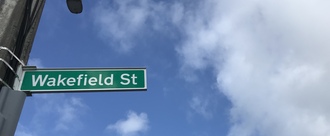
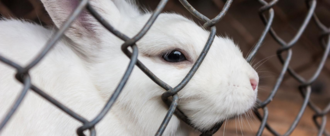


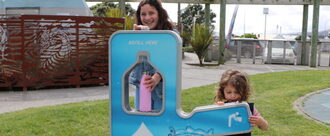
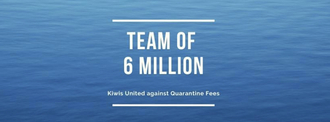
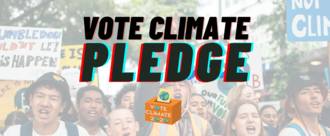.png)
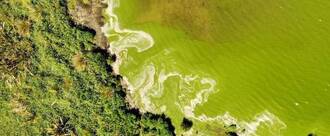

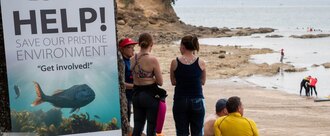
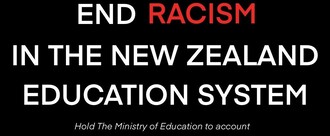.jpg)
